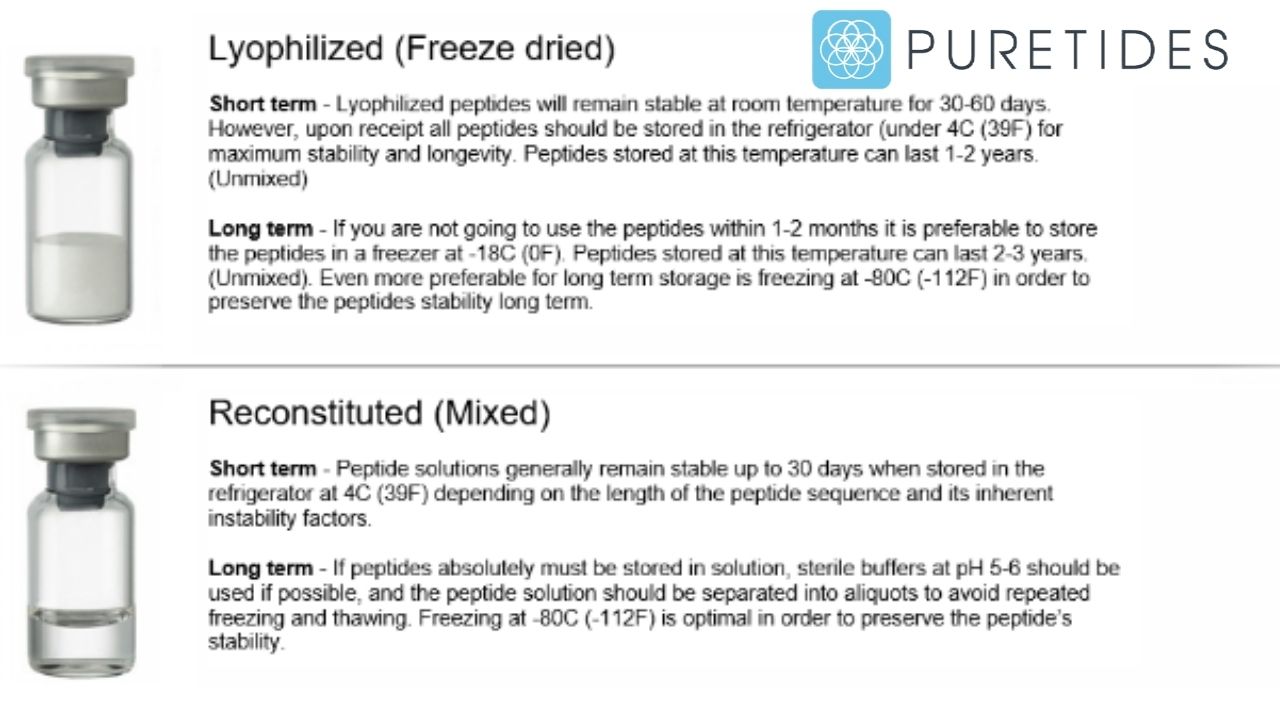To maintain the integrity of peptides and ensure reliable laboratory results, proper storage practices are of paramount importance. Implementing the following guidelines can help preserve peptides for extended periods, safeguarding against contamination, oxidation, and degradation that may compromise their usefulness and the success of experiments. While the susceptibility to degradation varies among peptides, adhering to best storage practices can significantly enhance their stability and integrity regardless of their composition.
Upon receipt, it is crucial to store peptides in a cold environment, shielded from light. If the peptides will be used within the next few days, weeks, or months, short-term refrigeration at temperatures below 4°C (39°F) is generally suitable. Lyophilized peptides can typically remain stable at room temperature for several weeks or more, making such storage adequate for short-term usage within weeks or months.
For long-term storage spanning several months to years, it is preferable to store peptides in a freezer at a temperature of -80°C (-112°F). Freezing is the optimal approach for maintaining peptide stability during prolonged storage.
Furthermore, it is essential to minimize the occurrence of freeze-thaw cycles as they can increase the peptide’s vulnerability to degradation. Frost-free freezers should also be avoided due to the wide temperature fluctuations that occur during defrosting cycles.
(Replace with your logo, Peptide Sciences)
When storing peptides, it is important to:
- Store peptides in a cold, dry, and dark environment.
- Avoid repeated freeze-thaw cycles.
- Limit exposure to air.
- Prevent light exposure.
- Refrain from storing peptides in solution for prolonged periods.
- Aliquot peptides based on experimental requirements.
By following these guidelines, you can optimize the storage conditions for peptides and maintain their stability and integrity, ensuring accurate and reliable laboratory outcomes.

